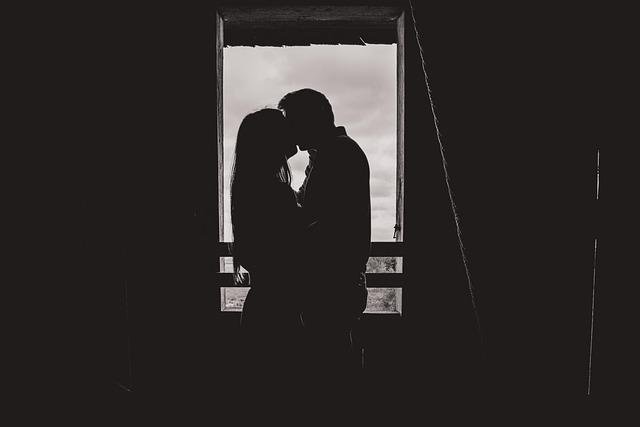We all crave connection, love, and understanding-fundamental needs that shape our happiness and well-being. But what happens when the person you care about is emotionally unavailable? It’s a heartbreaking place to be, caught between hope and hurt, longing for closeness that feels just out of reach. Knowing when to walk away from emotional unavailability is one of the most compassionate and courageous decisions you can make for yourself. In this article, we’ll gently explore the signs to watch for, the impact it has on your heart, and how to honor your own emotional needs with kindness and clarity. Because sometimes, letting go is the first step toward finding the love and peace you truly deserve.
Table of Contents
- Recognizing the Quiet Signs of Emotional Distance and What They Mean
- Understanding Your Own Emotional Needs Before Making Tough Decisions
- Setting Healthy Boundaries to Protect Your Wellbeing
- Finding Strength in Letting Go and Moving Toward Emotional Freedom
- Concluding Remarks
Recognizing the Quiet Signs of Emotional Distance and What They Mean
Emotional distance rarely announces itself with loud declarations; instead, it creeps in with subtle shifts that can be easy to overlook until the gap feels unbridgeable. You might notice a decrease in meaningful conversations, where *surface-level chatter replaces heartfelt dialogue*. Texts become less frequent and replies more delayed, creating a sense of silence that speaks volumes. Moments that once sparked enthusiasm now pass with a detached coolness, and intimate gestures may fade into mere routine. These quiet signs can feel confusing, but they often reveal an internal struggle-a reluctance or inability to engage deeply on an emotional level.
Understanding these signals is crucial, and so is recognizing what they imply about the other person’s readiness or willingness to connect. Consider these patterns:
- Avoidance of vulnerability in conversations, steering clear from topics that matter emotionally.
- Consistent unavailability when you seek support or closeness, even during important moments.
- Minimal emotional responsiveness, such as lacking enthusiasm or empathy when you share your feelings.
These behaviors don’t just point to a phase of busyness or distraction-they can signal an emotional withdrawal that undermines the foundation of trust and connection. Recognizing this early empowers you to make compassionate decisions about your own emotional wellbeing and whether or not to stay invested in the relationship.
Understanding Your Own Emotional Needs Before Making Tough Decisions
Before making any challenging decisions regarding relationships marked by emotional unavailability, it’s crucial to pause and tune into your own heart. Recognize the feelings stirring within you-whether it’s loneliness, frustration, or a yearning for connection. These emotions are signposts, guiding you toward what you truly need to feel valued and secure. When you understand your emotional landscape, you gain clarity about which needs are non-negotiable and which might be compromised without diminishing your well-being.
Take time to ask yourself:
- What does emotional safety look like for me?
- Which boundaries will protect my heart?
- Am I willing to accept less than I deserve?
Acknowledging these truths doesn’t make the decision easier, but it equips you with the self-respect and wisdom necessary for compassionate, yet firm choices. Remember, honoring your emotional needs sets the foundation for healthier connections-whether that means fostering change or having the courage to walk away.
Setting Healthy Boundaries to Protect Your Wellbeing
Recognizing when your emotional needs aren’t being met is crucial for maintaining your mental health. It’s important to establish clear limits that safeguard your energy and peace of mind. These boundaries help you avoid falling into the trap of constantly giving without receiving, which can lead to feelings of resentment and exhaustion. Remember, saying no or stepping back isn’t a sign of weakness-it’s a powerful act of self-respect and protection.
To start setting effective boundaries, consider the following practices:
- Identify your emotional limits: Understand what makes you uncomfortable and why.
- Communicate clearly and calmly: Use “I” statements to express your needs without blame.
- Stay consistent: Reaffirm your boundaries as needed to prevent overstepping.
- Prioritize your wellbeing: It’s okay to put yourself first when relationships become one-sided.
Finding Strength in Letting Go and Moving Toward Emotional Freedom
Letting go is often seen as an act of surrender, but it’s actually an empowering decision that allows you to reclaim your emotional well-being. When you release what no longer serves you, you create space for healing and growth. Recognizing the signs of emotional unavailability in others is the first step toward embracing your own freedom. It’s okay to prioritize your needs and choose peace over persistent pain. Walking away from situations that drain your spirit is not a sign of failure, but a courageous stride toward self-respect and true connection.
Moving forward means cultivating resilience and adopting habits that nurture your heart and mind. Here are some gentle reminders to support your journey:
- Honor your emotions without judgment-every feeling is valid and deserving of attention.
- Set clear boundaries that protect your emotional space from being compromised.
- Surround yourself with supportive people who uplift rather than deplete your energy.
- Practice self-compassion daily, acknowledging that healing is not linear but profoundly transformative.
In choosing freedom over fixation, you open your heart to love that is genuine, available, and nurturing-a love that starts with you.
Concluding Remarks
Ultimately, recognizing when to walk away from emotional unavailability is an act of self-love and courage. It’s never easy to let go of someone who’s been a significant part of your life, but prioritizing your emotional well-being is essential. Remember, you deserve connections where your feelings are valued and reciprocated. By acknowledging the signs and honoring your own needs, you open the door to healthier, more fulfilling relationships – and most importantly, to a more peaceful and empowered you. Trust yourself to make the choices that nurture your heart.


